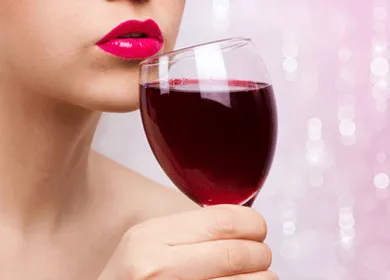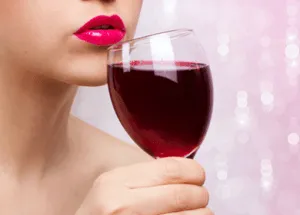
- Share on Facebook85
- Share on Pinterest
- Share on Twitter
Reservatrol is the antioxidant compound found in the skins of red grapes, as well as peanuts and select berries. It is found in high concentrations in red wine, due to the way the grapes are aged. New research shows a direct link between reservatrol and longevity.
Culinary scientists have long speculated that the frequency with which the French culturally consume red wine has a lot to do with their long average lifespan despite high-calorie, saturated fat-filled diets. While their theories were unverified for some time, reservatrol has now been scientifically connected with longevity, as well as therapeutic properties to combat a variety of ailments.
One recent study, published in the March 8, 2013 issue of Science magazine, found conclusive evidence that reservatrol directly affects a protein that encourages longevity in animals. This protein, called SIRT1, shields the body from illness by accelerating the mitochondria that slows as we age. The process works much like recharging a battery. In lab tests, mice, flies, bees and nematodes displayed extended lifespan when treated with reservatrol.
Amazingly, mice that were given reservatrol were also much more resistant to aging and obesity than the control group. Harvard Medical School professor of genetics and senior author David Sinclair states, “in the history of pharmaceuticals, there has never been a drug that binds to a protein to make it run faster in the way that reservatrol activates SIRT1. Almost all drugs either slow or block them.”
In a 2007 study also performed by Harvard Medical School, researchers found that reservatrol mimicked calorie restriction when injected into cells. This process is the only scientifically known way to slow aging. Results of the study showed that reservatrol increased the lifespans of certain yeast cells by 70 percent, and also extended the lifespans of mice on a high-calorie diet.
Research focused on heart attack survivors performed in 2012 at the University of Pecs, Hungary, revealed that reservatrol prevented blood platelets from clumping together and forming clots. Participants who were given reservatrol also experienced lower blood pressure, lower LDL, or ‘bad’ cholesterol, as well as lowered blood pressure.
In addition to these findings, there is significant evidence showing that reservatrol may inhibit the growth of cancer cells. A 2006 study by the University of Burgandy, France, specifically demonstrated that this is accomplished by reservatrol’s ability to stop the growth of blood vessels that feed tumors.
While results are preliminary, it is speculated that reservatrol may protect agains breast, lung, skin, prostate and colon cancers. This magnificent compound has also been shown to reduce inflammation. While human testing has yet to be performed, many researchers are confident that reservatrol will show these overwhelmingly positive effects on humans as well.

After assessing the results of reservatrol and its anti-aging properties, scientists have announced that they will be working on a way to synthesize reservatrol into a variety of anti-aging pharmaceuticals. However, while these scientists are busy trying to create an artificial version, you can get the benefits of the whole, natural compound easily and deliciously by going straight to
the natural source.
Display a bowl of red grapes on your coffee table, and let your whole family enjoy their healing properties all day long. When choosing a red wine, reach for one with grapes grown in cold climates, such as Northern regions of France and Italy. These contain higher levels of reservatrol than those with grapes grown in warmer regions. For a healthy mid-morning snack, add a trail mix containing peanuts and whole grapes to your child’s lunchbox. Whatever the recipe, reservatrol has the strong potential to keep you and your family in optimal health.
– The Alternative Daily
- Share on Facebook85
- Share on Pinterest
- Share on Twitter

